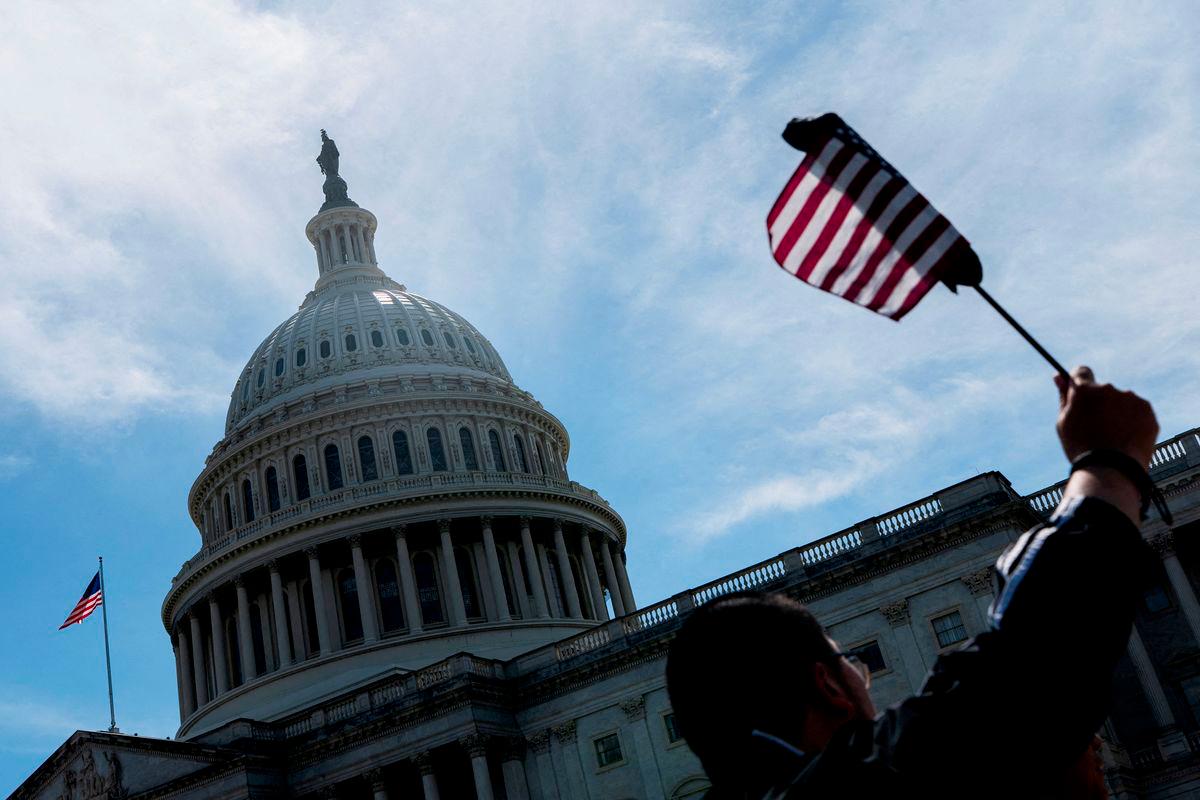WASHINGTON: A handful of hardline US House of Representatives Republicans, concerned that President Donald Trump's tax cut bill does not sufficiently cut spending, were headed to the White House on Wednesday as the party struggled to unify around a path forward.
House Speaker Mike Johnson will join the 3 p.m. (1900 GMT) meeting, confirmed by the White House, a day after Trump made a personal visit to Capitol Hill to urge his Republican Party to unify around the bill extending and adding to his 2017 tax cuts.
The nonpartisan Congressional Budget Office said it will add $3.8 trillion to the US's $36.2 trillion in debt over the next decade. Credit rating firm Moody's last week stripped the US government of its top-tier credit rating, citing the nation's growing debt, and US stocks fell on Wednesday amid investor concern about the mounting debt.
“We are greatly encouraged by the progress that’s been made in the past 24 hours,“ hardline Republican Andy Harris said, standing with eight other hawks on Wednesday. “I think this package is en route to get passed. I don’t think it could be done today.”
Johnson said, “There is a chance for a vote today.”
He said negotiators had agreed on deductions for state and local taxes - a major issue for Republican lawmakers from New York and California, who are critical to his narrow majority - but acknowledged hardliners' resistance.
The gate-keeping House Rules Committee began debate around 1 a.m. EDT (0500 GMT) on the measure. Success in the House would set the stage for what weeks of expected debate in the Senate.
Republicans, who control both chambers of Congress, are waiting for their leadership's overall amendment package to the bill that is meant to coalesce the party's sparring factions. Democrats have also proposed more than 500 amendments.
If Congress passes the legislation, it would reduce some health and food benefits for low-income Americans, cancel green-energy programs and provide tens of billions of dollars for immigration enforcement.
Trump huddled with Republican lawmakers on Tuesday to try to persuade holdouts to get in line on what he calls a “big, beautiful bill,“ but the visit failed to sway the wide array of lawmakers who object to specific features.
LITTLE WIGGLE ROOM
Johnson has little room for error, as his party holds a narrow 220-212 majority and a handful of “no” votes from his side could scuttle the bill, which Democrats say favors the wealthy and cuts to needed social programs.
“We’ve got the majority. We’ve got the president in there to fix this country. And we have an opportunity of a generation, a lifetime,“ said Representative Bruce Babin, a Texas Republican. “I’m just hoping and praying that we get the thing passed.”
The bill would extend the 2017 tax cuts that were Trump's signature first-term legislative achievement, and also add tax breaks on income from tips and overtime pay that were part of his populist push on the campaign trail last year. Nonpartisan analysts say it could add $2 trillion to $5 trillion to the federal debt.
Republican lawmakers have said they do not believe the nonpartisan analysts' projections and accused Moody's of deliberately timing its Friday afternoon downgrade to try to block the bill's passage.
Democrats said the bill disproportionately benefits the wealthy and cuts programs needed by working families.
“We’re going to ask Americans to finance tax cuts for billionaires on the national debt - on the credit card,“ said Representative Gwen Moore, a Democrat on the tax-writing committee. “Deficits aside, this bill is ugly because it is ultimately a betrayal of the contract that we have made with the American people, and especially to our babies and to our working people.”
The Medicaid health program for low-income households has proven to be a major sticking point, with fiscal hawks pushing for cuts to partly offset the cost of the bill's tax components, which moderate Republicans say would hurt voters whose support they will need in the 2026 midterm congressional elections.
The bill also faces objections from a handful of centrist Republican lawmakers from high-tax states, including New York and California, who are pushing to expand a proposed $30,000 cap on deductions for state and local taxes.
The bill would raise the nation's debt ceiling by $4 trillion. Lawmakers must act to address that limit by this summer or risk triggering a devastating default.









